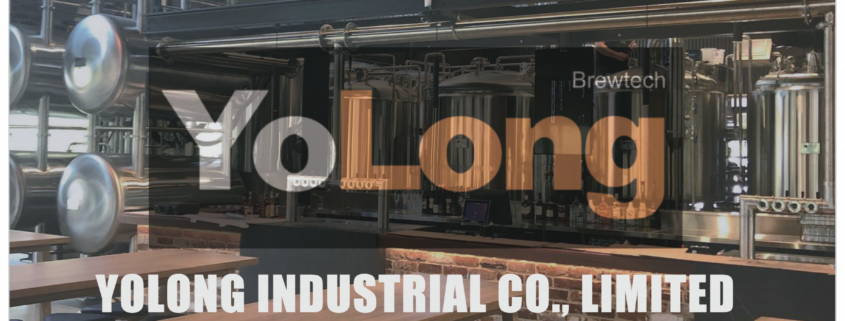Top 5 Industrial Beer Fermenters for Commercial Breweries
Introduction to the Use and Importance of Industrial Beer Fermentation Tanks
Let’s be honest, beer is more than just a drink. It’s a global language, a cultural bridge, and in many ways, a science. Behind every pint you enjoy is a meticulous brewing process, and at the heart of it all is the industrial beer fermenter. Without these specialized fermentation tanks, your favorite IPA, lager, or stout simply wouldn’t exist.
Industrial beer fermenters are the unsung heroes of the brewing world. They allow brewers to create beer at scale while maintaining quality and consistency. Whether you’re operating a massive brewing facility or scaling up from a homebrew operation, these tanks are critical. Their design ensures that yeast can properly ferment the sugars into alcohol, giving beer its signature flavor and kick. Without them? You’d probably be drinking something that tastes more like sweet cereal than your crisp pilsner.
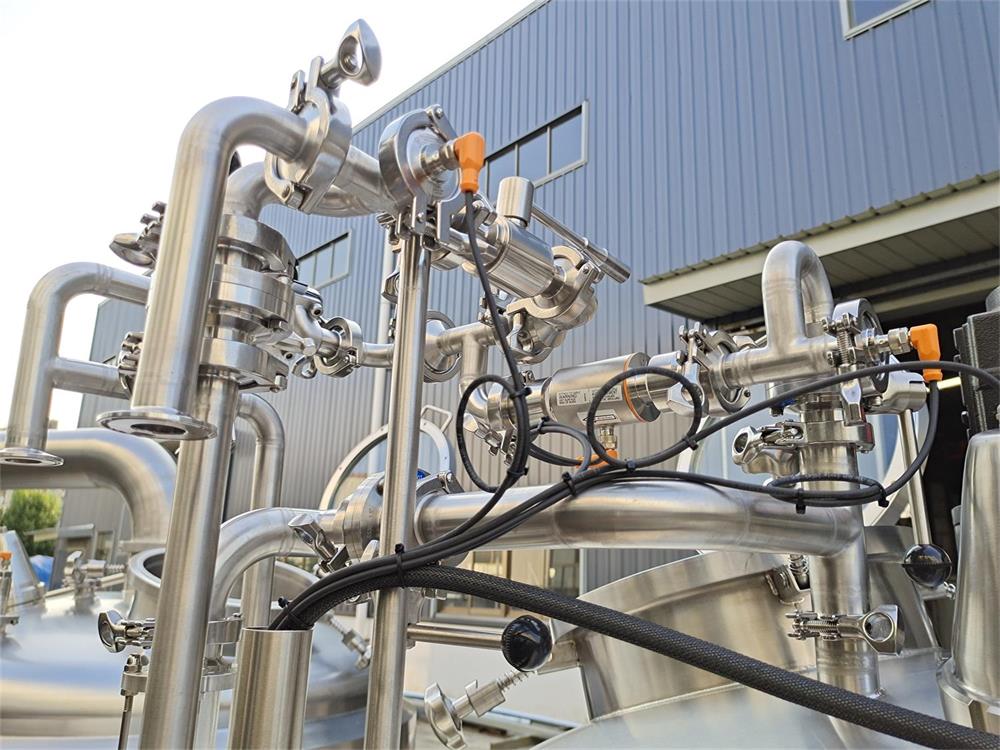
What is an Industrial Beer Fermenter?
An industrial beer fermenter is a specially engineered vessel designed to hold wort while yeast ferments it into beer. Imagine a giant stainless steel cocoon where sugars magically transform into alcohol and carbon dioxide. Well, it’s not magic—it’s chemistry, and fermenters make it happen on a grand scale.
Unlike small-scale homebrewing buckets, industrial fermenters are built for efficiency, precision, and hygiene. They’re typically made from stainless steel to prevent contamination and withstand pressure. Some fermenters are open, allowing exposure to the air, while others are sealed for complete control. The fermenter’s shape, cooling jackets, valves, and pressure controls all work together to create the perfect environment for fermentation.
Types of Beer Fermenters: Cylindroconical vs. Open Fermentation vs. Unitanks
When it comes to types of industrial beer fermenters, you have some pretty interesting options to choose from. But it’s not just about size; it’s about how each type supports specific brewing goals.
Cylindroconical Fermenters
These are the rockstars of modern brewing. Picture a cone-shaped bottom with a tall, cylindrical body. This design makes it easy to collect yeast and sediment. It also allows for faster, cleaner transfers and is ideal for both primary and secondary fermentation. Compared to other types, cylindroconical fermenters are easier to clean and more versatile.
Open Fermentation Tanks
Throwback to traditional brewing! Open fermenters expose the wort to the air. This can develop complex flavors, but it also requires extremely clean brewing conditions to avoid contamination. These are often used by craft brewers chasing unique flavor profiles.
Unitanks
Unitanks are like the Swiss Army knife of fermenters. They handle both fermentation and conditioning in a single vessel, saving space and time. They offer more control compared to open fermenters and are more efficient compared to using separate tanks. They’re typically used in smaller to medium-sized breweries where versatility is key.
| Type of Fermenter | Description | Advantages | Disadvantages |
|---|---|---|---|
| Cylindroconical Fermenters | Cone bottom, sealed tank | Easy yeast collection, easy to clean | Higher initial cost |
| Open Fermentation Tanks | Exposed to air, shallow tanks | Unique flavors, traditional methods | High risk of contamination |
| Unitanks | All-in-one fermenter and conditioning tank | Saves space and time, versatile | Can be more complex to operate |
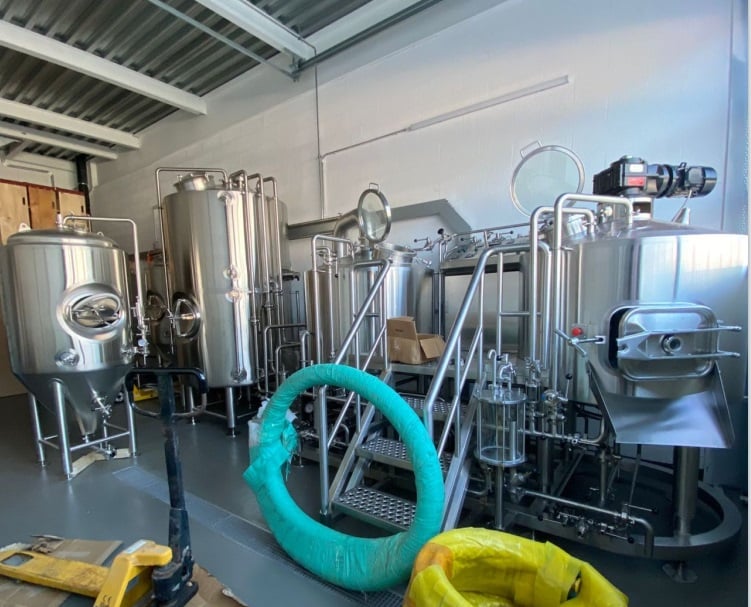
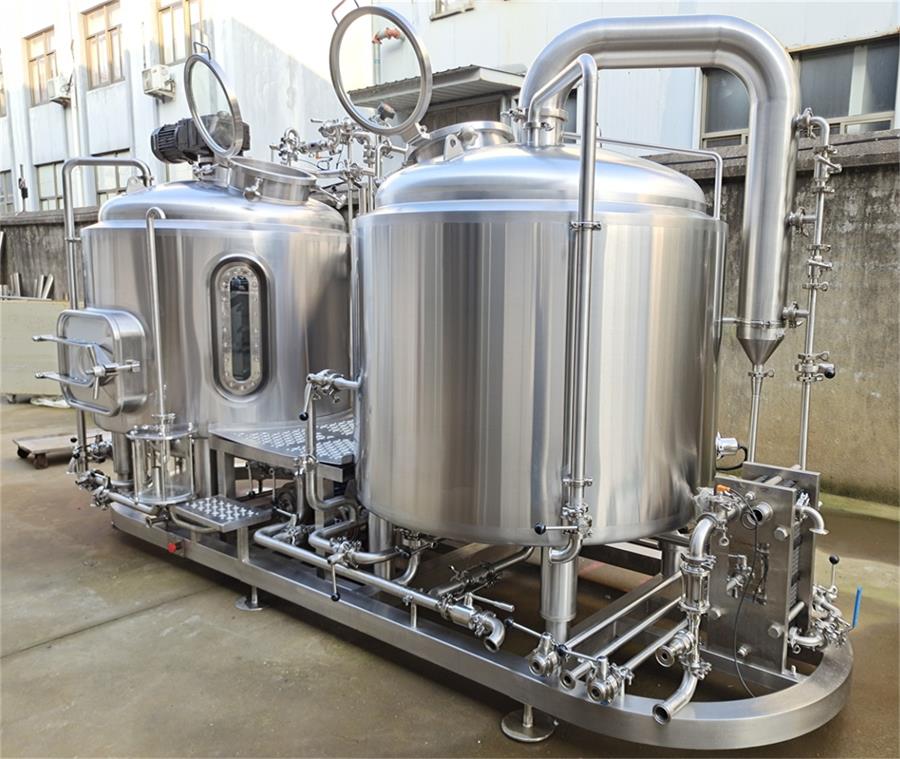
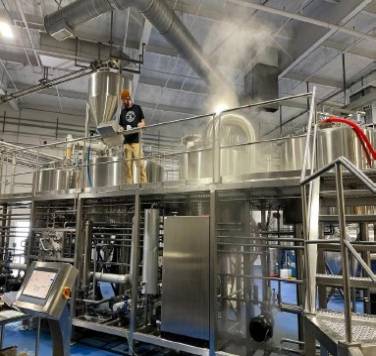
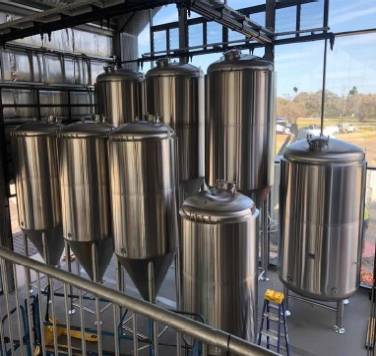
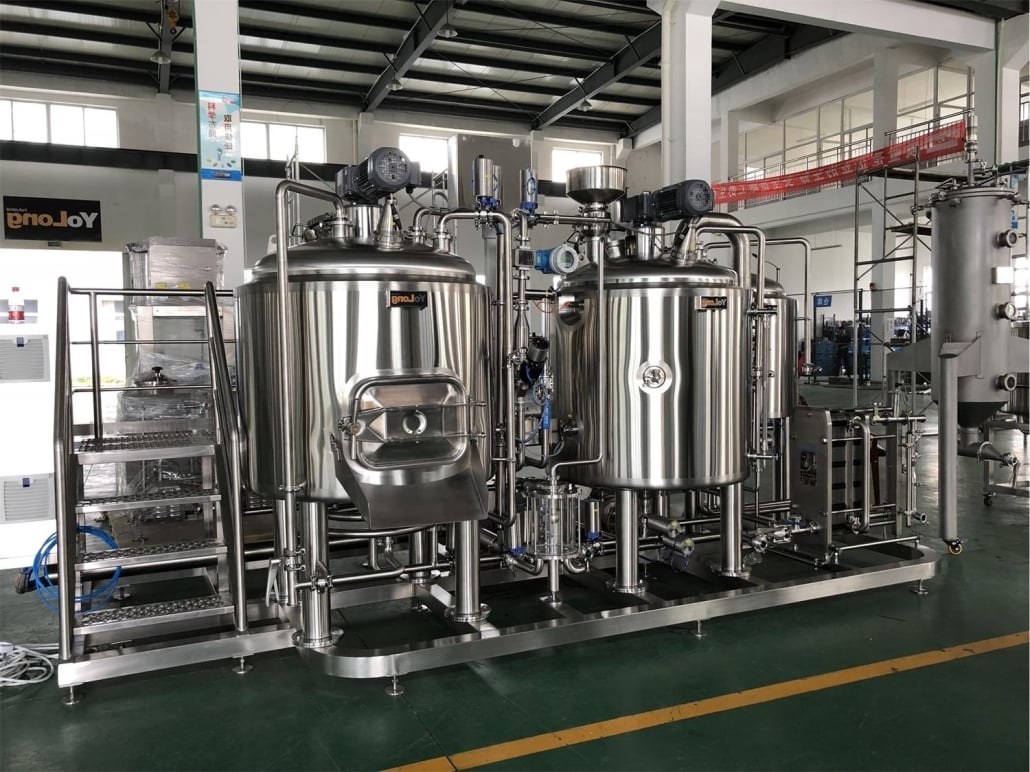
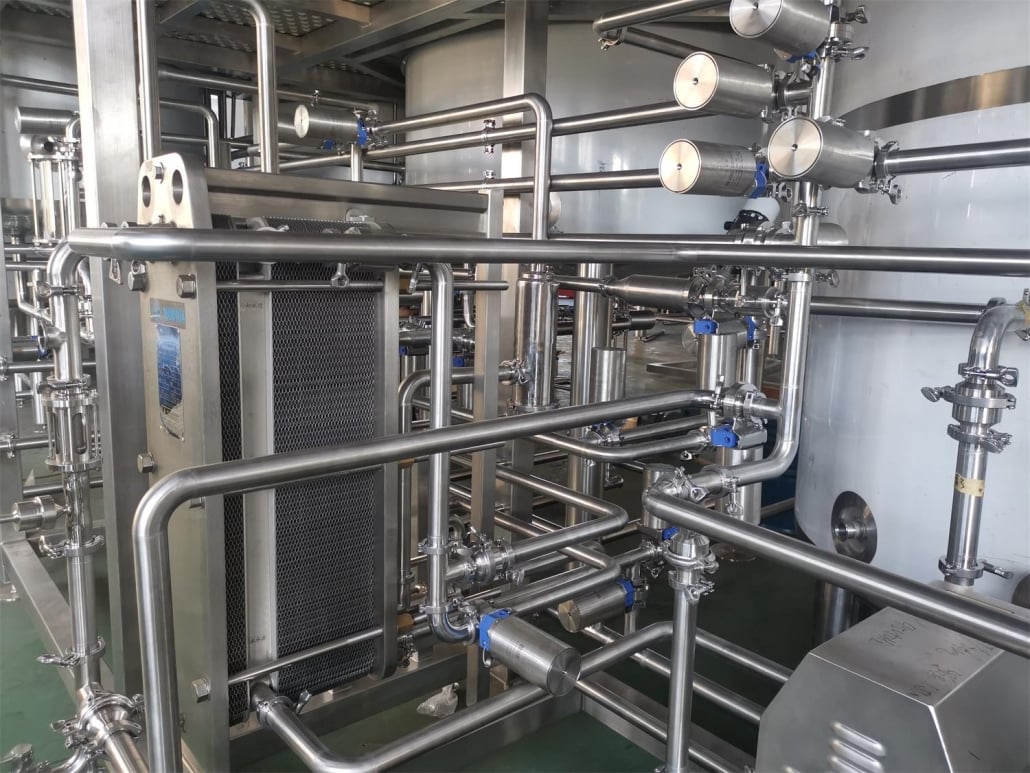
Key Features to Consider When Choosing an Industrial Beer Fermenter
Selecting an industrial beer fermenter isn’t just about grabbing the biggest tank you can afford. It’s a bit like choosing a car—you’ve got to consider what you really need.
Material Quality: Stainless steel reigns supreme here. It resists corrosion, is easy to clean, and doesn’t interfere with flavor.
Capacity: Do you plan to brew 5 barrels or 500? Choose a fermenter size that matches your production goals without overextending your space.
Temperature Control: Fermentation is a temperature-sensitive process. Look for fermenters with cooling jackets or insulation to maintain the perfect environment for your yeast.
Pressure Rating: Some fermenters are built to handle pressurized fermentation, which is great for certain beer styles and allows you to carbonate in the same tank.
Ease of Cleaning: Sanitation is king in brewing. Features like Clean-In-Place (CIP) systems can make your life a lot easier.
Accessibility: Valves, manways, and ports should be easy to reach and operate.
Cost vs. Features: High-end fermenters offer more precision but come at a premium. It’s all about balancing your budget with your brewing ambitions.
Benefits of Using Industrial Beer Fermenters
So why are industrial beer fermenters such a big deal? Let’s break down the benefits that make these tanks the backbone of every successful brewery.
Consistency: Imagine trying to bake a cake without measuring ingredients—you’d get wildly different results each time. Fermenters give brewers a controlled environment that helps ensure every batch tastes just right.
Efficiency: Time is money, especially in the brewing world. Industrial fermenters can handle larger volumes and speed up the process compared to smaller setups.
Scalability: Want to go from a neighborhood favorite to a regional powerhouse? Industrial fermenters can grow with you, supporting increased batch sizes.
Quality Control: Features like temperature regulation and pressure control mean you can fine-tune each step for optimal flavor and carbonation.
Hygiene: Stainless steel tanks with CIP systems drastically reduce the risk of contamination, which is a brewer’s worst nightmare.
Versatility: Especially with unitanks, you can ferment and condition in the same vessel, saving both space and operational time.
How to Choose the Right Fermenter for Your Brewery
When figuring out how to choose the right fermenter for your brewery, it’s a bit like matchmaking. You need something that fits your space, suits your brewing style, and aligns with your growth plans.
Assess Your Production Goals: Are you brewing for a taproom, a local pub, or are you shipping across the country? The size and number of fermenters will depend on your output.
Consider Your Beer Styles: Some fermenters are better suited for lagers, while others excel at ales. If you want to explore mixed fermentation or open-air processes, that changes the game.
Space Planning: You can’t just jam a massive fermenter into a small facility. Measure carefully and think about future expansion.
Budget Constraints: Be realistic. Sure, the top-tier fermenters have all the bells and whistles, but are those features essential for your current operation?
Supplier Reputation: Stick with manufacturers known for reliability and excellent customer support. Reviews, case studies, and peer recommendations can guide you here.
| Brewery Size | Recommended Fermenter Type | Typical Capacity Range |
|---|---|---|
| Small/Startup Brewery | Unitanks, Cylindroconical | 3-15 BBL (Barrels) |
| Medium Brewery | Cylindroconical | 15-60 BBL |
| Large Brewery | Cylindroconical, Open Tanks | 60-300+ BBL |
Cost of Industrial Beer Fermenters
Let’s talk numbers. The cost of industrial beer fermenters can swing dramatically depending on size, features, and manufacturer.
Smaller Fermenters (3-15 BBL): These can range from $3,000 to $15,000 each. They’re perfect for small breweries just starting out or looking to offer a variety of beer styles.
Medium-Sized Fermenters (15-60 BBL): Expect prices between $15,000 and $50,000. These hit the sweet spot for growing operations.
Large Fermenters (60-300+ BBL): Here, you’re looking at $50,000 to over $200,000. These tanks are beasts, capable of supporting regional and national distribution.
Besides the tank itself, you’ll need to budget for installation, cooling systems, and possibly custom modifications. Don’t forget to factor in maintenance and cleaning costs over time.
| Fermenter Size | Price Range | Best For |
|---|---|---|
| 3-15 BBL | $3,000 – $15,000 | Small breweries, taprooms |
| 15-60 BBL | $15,000 – $50,000 | Expanding breweries |
| 60-300+ BBL | $50,000 – $200,000+ | Large scale, regional/national |
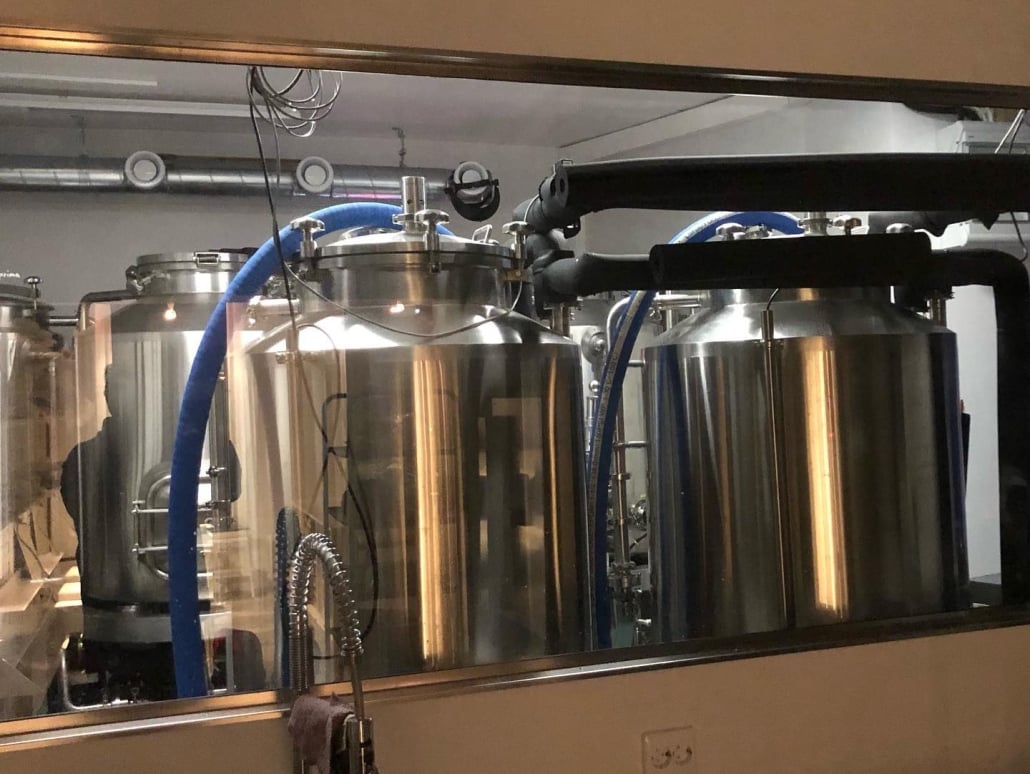
FAQs
| Question | Answer |
|---|---|
| What is the typical lifespan of an industrial beer fermenter? | With proper care and maintenance, industrial beer fermenters can last 20-30 years or even longer. Stainless steel is incredibly durable. |
| Can I use the same fermenter for different beer styles? | Yes, but thorough cleaning is essential between batches to avoid cross-contamination and flavor carryover. |
| How do I clean an industrial beer fermenter? | Most fermenters have Clean-In-Place (CIP) systems that circulate cleaning agents, making sanitation easier and safer. |
| Do industrial fermenters require special installation? | Yes, they often need professional installation, including proper anchoring, cooling system connections, and sometimes special flooring or reinforcement. |
| How do I control fermentation temperature? | Fermenters usually come with cooling jackets or integrated glycol systems to maintain precise temperature control. |
| Can I carbonate beer in the fermenter? | In pressurized fermenters or unitanks, you can carbonate beer directly, saving time and equipment costs. |
| Are open fermenters safe to use? | They can be, but they require a sterile environment and excellent sanitation practices to minimize contamination risks. |

